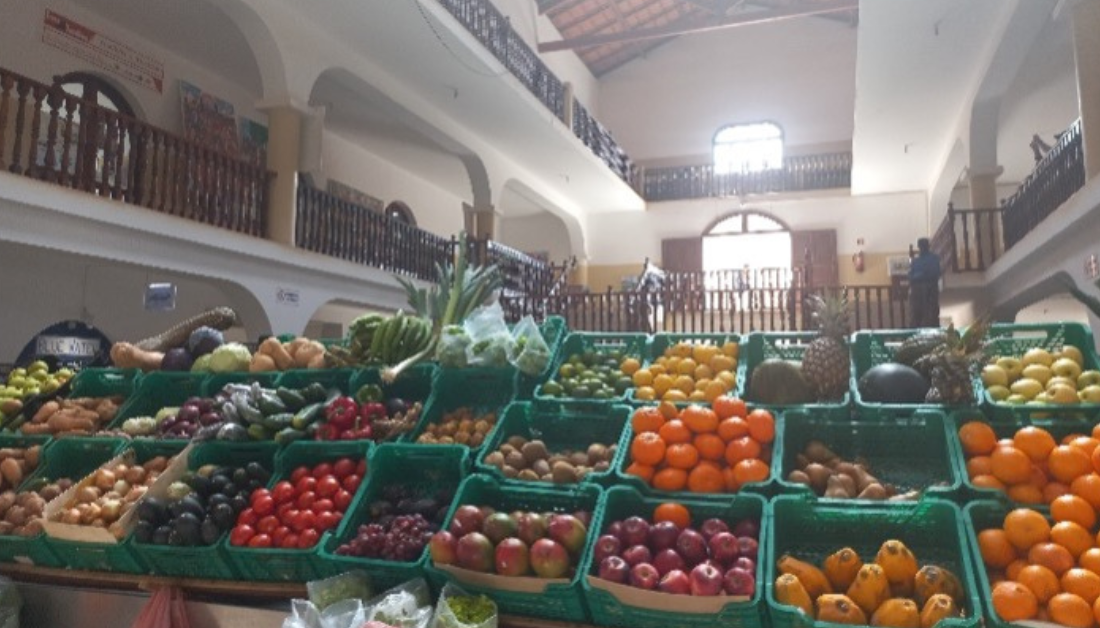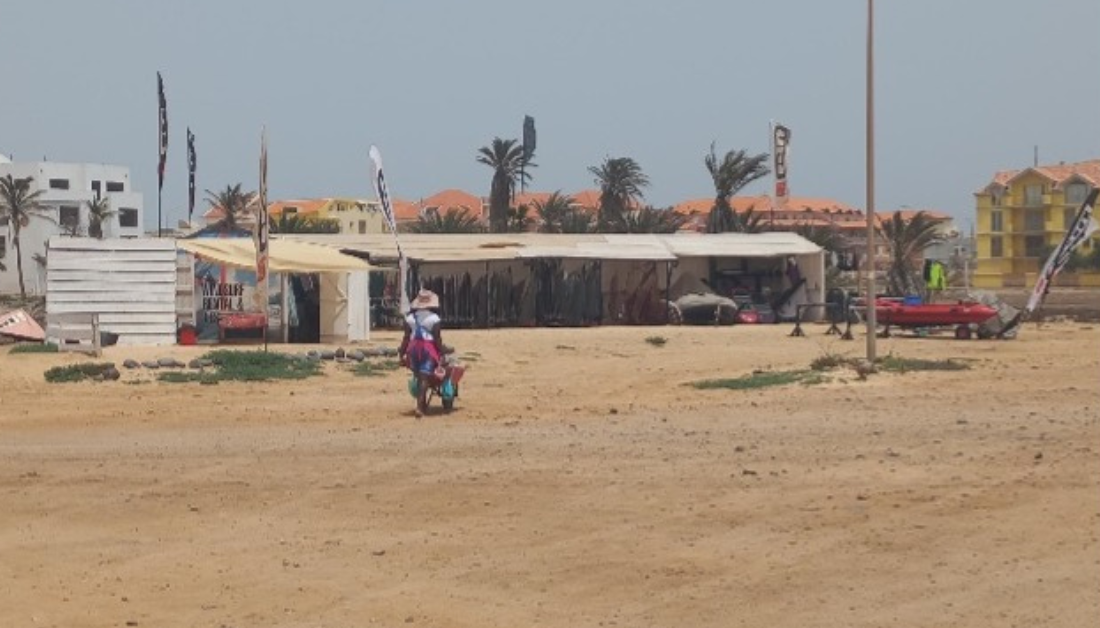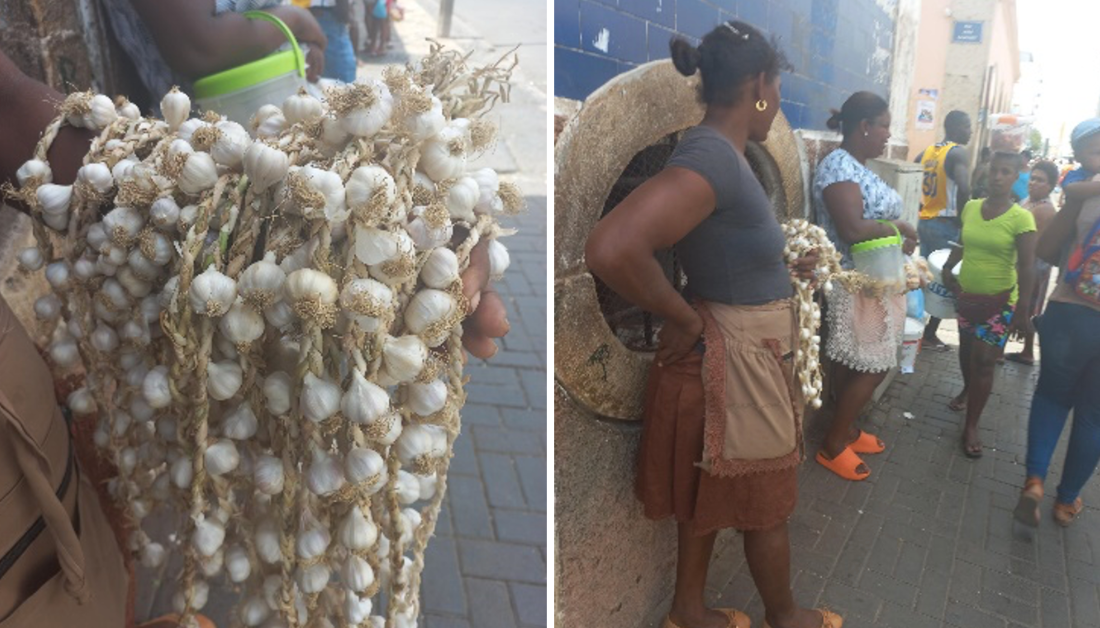"Totocaixa: an informal credit mechanism"
Savings Bank of Cabo Verde
April 26, 2023
Author: Samory Araújo, Head of Solutions Mapping, UNDP Cabo Verde Accelerator Lab

Financial credit a challenge for informal business
The informal economy in Cabo Verde is often run by women, commonly referred to as 'rabidantes'. These women face many challenges and obstacles, including lack of access to formal financial and legal systems, limited opportunities for education and training, and discrimination based on gender or socio-economic status. Efforts to support and empower these women can help strengthen their businesses and improve their livelihoods, as well as contribute to the overall development of their communities.
“Rabidantes” in Cabo Verde faces several financial and economic challenges, the most common of which is limited access to finance. And lack of access to formal financial services such as loans or credit due to lack of collateral, formal documentation, or credit history. In addition to financial challenges, these women face many others, such as:
Lack of business skills and knowledge: Many women involved in informal business may lack the necessary skills and knowledge to effectively manage and grow their businesses, such as financial management, marketing, and business planning.
- Limited market access: Informal businesses in Cape Verde often operate in small and localised markets, which can limit their growth potential and profitability.
- Informal business practices: Informal businesses often operate outside of formal regulations and legal frameworks, which can make it difficult to access formal support or services.
- Discrimination: Women involved in informal business may face discrimination based on their gender or socio-economic status, which can limit their opportunities for growth and success.

Totocaixa, the Savings Solution
It is interesting to note that totocaixa is an informal credit mechanism that has gained popularity in Cape Verde, particularly among the Rabidantes. This mechanism involves the creation of a network of solidarity among informal traders, where they pool their resources to provide each other with easier access to credit. This approach is particularly useful for those who find it difficult to obtain credit from traditional banking institutions, either because of strict requirements or a lack of trust in such institutions.
The use of totocaixa highlights the importance of access to finance for businesses, including those run by informal traders. Access to finance is essential not only to start a business, but also to grow and develop it. Traditional banking institutions may not always be the best option for providing such finance, particularly in environments where there is a lack of trust or where it is difficult to meet their requirements.
The use of informal credit mechanisms such as totocaixa can be a viable alternative for businesses in such situations. However, it is important to note that such mechanisms can carry their own risks, including a lack of regulation and the potential for fraud or default. It is therefore crucial to carefully consider the pros and cons of any funding option before planning.

Mapping the stories behind the solution
As part of the solutions mapping visit to the island of Sal, we looked for solutions in the areas of tourism and entrepreneurship. During one of these field visits, we met two informal traders, both from the island of Santiago, both residents of the island of Sal, who categorically stated that the totocaixa was the solution they had found to their financial challenges, as they did not have the formal conditions required by banks to formalise loans. Maria is a fruit seller in the tourist town of Santa Maria: a fruit seller who has been with totocaixa for 5 years. Teresa, a market vendor for 8 years: "I play totocaixa and it has helped me to solve my immediate financial problems and more".

Back on the island of Santiago, the field visit continues to learn how the totacaixa system is enabling low-income women in the informal economy in Cabo Verde to strengthen their credit and build their prospects for the future. On our conversation with Tina a garlic seller, she told us: "I've been in this business for thirteen years, I come to Cidade da Praia every day to sell garlic, and I've been playing totocaixa for eleven years. "I play in two groups, one with 50 people, everyone pays 200 CVE and every day one person gets 10,000 escudos; another with 20 people plays every eight days for a thousand CVE and each person gets 20,000 CVE.” And she continues: "For a person like me, who does not have the formal credit conditions required by a bank, totacaixa is a savings solution, and I have been very lucky in the groups where I play totacaixa: everyone follows the rules and pays on time, because sometimes we hear stories of people who do not follow the rules and things can get complicated when that happens".
At sucupira, the most famous fair in Cape Verde, we met Rosa, a 52-year-old woman with 30 years in the clothing sector and 25 years in totocaixa " I have three children who now live outside Cape Verde, one went to University, and the other two emigrated, the plane ticket, the preparations for the trip, including school fees were paid with money from totocaixa". “The money we receive is used to invest in the business, and often when we have money there is a risk that it will be withdrawn for other purposes, so when we play totocaixa we already know that we will receive a certain amount of money".

Conclusion
Totocaixa is a credit mechanism that works based on solidarity between people, for the benefit of those who "need credit" and may not have the conditions required by the formal banking sector; but anyone who thinks that only people from the informal sector play Totocaixa is mistaken.
Today, totocaixa is very widespread in Cape Verde and people from different areas and/or professions play totocaixa, including public and private sector employees.

 Locations
Locations